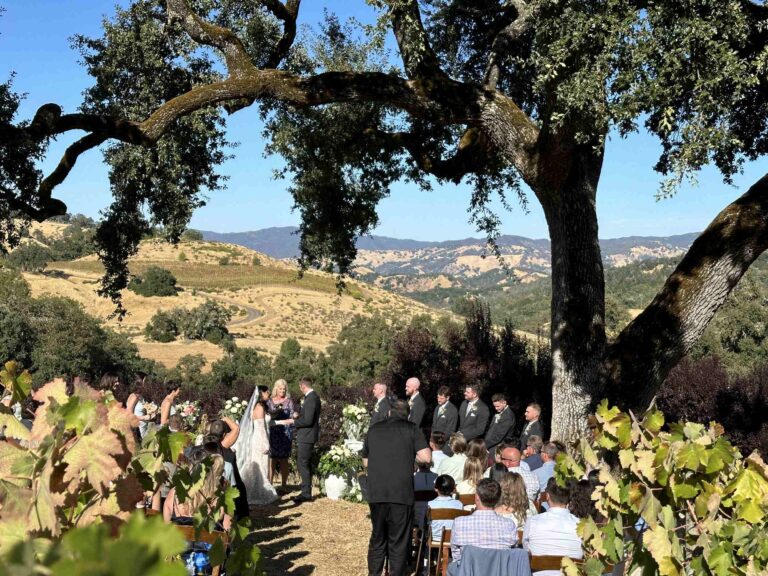Do I Need Wedding Insurance?
The Ins and Outs of Wedding Insurance
Planning a wedding is an exciting yet complex process, filled with numerous decisions and potential stressors. One question that often arises is whether wedding insurance is necessary, and the short answer is yes, absolutely. The reasons are numerous, starting with the fact that as you are putting on the wedding, you are the host, and as such, you bear the responsibility – the liability – for any damage or injuries that might occur. All legitimate wedding venues will require that you purchase the insurance, and while it protects the venue, just as importantly, it protects you. While obtaining wedding insurance may sound difficult and expensive, it’s actually not: the insurance can be obtained online and can take 5-10 minutes and the typical cost is a couple of hundred dollars – a bargain when looking at the tens of thousands dollars that will be spent on the wedding.
1. What is Wedding Insurance
Wedding insurance is a type of special event insurance that provides financial protection against unforeseen circumstances that could disrupt your big day. Here’s why you need it:
-
Financial Protection: Weddings can be expensive, with the average cost in the U.S. reaching tens of thousands of dollars. Wedding insurance can protect this significant investment from unexpected events such as vendor no-shows, extreme weather, or sudden illness. Imagine spending months planning every detail of your wedding, only to have a your partner become ill or injured the night before your wedding day and force you to cancel the event. Without insurance, you could lose all the money you’ve invested in deposits and non-refundable expenses.
-
Peace of Mind: Knowing that you have a safety net can alleviate some of the stress associated with wedding planning. It allows you to focus on enjoying your special day rather than worrying about potential mishaps. This peace of mind is invaluable, especially when you’re juggling multiple tasks and decisions. With insurance, you can rest assured that even if something goes wrong, you won’t be left scrambling to cover unexpected costs.
-
Coverage for Various Scenarios: Wedding insurance typically covers a range of issues, including venue problems, weather disruptions, vendor issues, and even illness or injury. This broad coverage ensures that you are protected against many common wedding day problems. For example, if your photographer suddenly cancels, your insurance can help cover the cost of hiring a last-minute replacement, ensuring your memories are still captured beautifully.
-
Vendor Bankruptcy: In today’s uncertain economic climate, there’s always a risk that a vendor could go out of business before your wedding. Wedding insurance can cover the costs associated with finding a new vendor on short notice, ensuring your day goes off without a hitch.
-
Military Service: If you or your partner are in the military, there’s always a chance that deployment or a change in duty station could force you to postpone your wedding. Wedding insurance can cover the costs associated with rescheduling, so you don’t have to worry about losing your deposits.
2. Why Do Wedding Venues Require Wedding Insurance?
Many wedding venues require couples to have wedding insurance, particularly liability insurance. Here’s why:
-
Protection Against Liability: Venues want to protect themselves from potential lawsuits. If a guest is injured during your wedding or if there is property damage, liability insurance can cover the costs, protecting both you and the venue from financial loss. For example, if a guest slips and falls on the dance floor, liability insurance can cover their medical expenses and any legal fees that might arise.
-
Alcohol-Related Incidents: If alcohol is being served at your wedding, the risk of accidents increases. Liability insurance can cover incidents related to alcohol consumption, such as a guest injuring themselves or others. This is particularly important if your venue doesn’t have its own liquor liability coverage. With insurance, you can ensure that any alcohol-related incidents are covered, protecting you from potentially significant financial liability.
-
Vendor Requirements: Some vendors may also require proof of insurance to ensure they are not held liable for any accidents or damages that occur during the event. This is especially common with high-risk vendors like fireworks companies or those providing large equipment. By having insurance, you can meet these requirements and ensure that all your vendors are covered.
-
Venue Property Protection: Venues often have valuable property and equipment that could be damaged during an event. Insurance helps protect these assets, ensuring that any damage caused by guests or vendors is covered. This can include everything from broken windows to damaged landscaping.
-
Compliance with Regulations: In some areas, local regulations may require venues to ensure that events held on their property are insured. By requiring couples to have insurance, venues can comply with these regulations and avoid potential fines or legal issues.
3. The Venue I’m Considering Doesn’t Require Insurance – Should I Be Concerned?
Yes. If a wedding venue doesn’t require insurance, it shows a lack of understanding of the business they are in and a careless approach to both you and their venue. This could be an indication that the venue is cutting other corners as well, such as having the proper permits to host weddings.
4. Besides Liability Insurance, What Additional Insurance Should I Consider?
While liability insurance is crucial, there are other types of coverage you might want to consider to ensure your wedding day goes off without a hitch:
-
Cancellation/Postponement Insurance: This covers the costs if you need to cancel or postpone your wedding due to unforeseen circumstances like extreme weather, illness, or vendor issues. This type of insurance can be a lifesaver if something unexpected happens, allowing you to reschedule without losing your investment.
-
Vendor No-Show Insurance: If a key vendor, such as the caterer or photographer, fails to show up, this insurance can cover the costs of finding a last-minute replacement. This ensures that your wedding can proceed as planned, even if a vendor lets you down.
-
Special Attire Insurance: This covers the cost of repairing or replacing the wedding dress, tuxedo, or other special attire if they are damaged or lost. Given the significant investment many couples make in their wedding attire, this coverage can provide valuable peace of mind.
-
Wedding Gifts Insurance: This provides coverage for theft or damage to wedding gifts. Whether your gifts are stolen from the reception venue or damaged in transit, this insurance can help you recover the value of your lost or damaged items.
-
Honeymoon Insurance: If you’re planning a honeymoon, travel insurance can protect against trip cancellations, lost luggage, and other travel-related issues. This ensures that your post-wedding getaway is as stress-free as possible, even if something goes wrong.
-
Photography and Videography Insurance: This covers the cost of re-taking photos or videos if the originals are lost, damaged, or of poor quality. Given the importance of capturing your wedding memories, this coverage can be invaluable.
-
Liability Insurance for Rehearsal Dinner and Other Events: If you’re hosting additional events like a rehearsal dinner or post-wedding brunch, you may want to consider liability insurance for these events as well. This ensures that you’re covered for any accidents or damages that occur during these gatherings.
-
Jewelry Insurance: If you have expensive wedding rings or other jewelry, while wedding insurance may provide coverage, you will want to have ongoing coverage far beyond your wedding day, so it may make more sense to consider adding a rider to your homeowners or renters’ insurance to cover these items. This ensures that you’re protected against loss, theft, or damage, not only on your wedding day but into the future.
5. Can My Homeowners or Renters’ Insurance Provide Wedding Insurance?
While it’s worth checking into your homeowners or renters’ insurance, in most cases they will not be able to provide the often required “host liquor liability” or coverage limits specified by the venue.
6. How Much Does Wedding Insurance Cost?
The cost of wedding insurance can vary widely based on several factors, including the level of coverage, the location of the wedding, and the specific insurance provider. Here’s a general breakdown:
-
Basic Liability Insurance: This typically costs around $185 and covers up to $1 million in accidents. This coverage is usually sufficient for most weddings and provides peace of mind that you’re protected against common risks.
-
Event Cancellation Insurance: This can range from $75 to $550, depending on the total cost of the wedding and the level of coverage chosen. Higher-end policies may cover additional expenses like lost deposits, rescheduling fees, and even the cost of a new wedding dress if yours is damaged or lost.
-
Comprehensive Policies: For more extensive coverage, including both liability and cancellation, costs can be higher. It’s essential to compare different policies and providers to find the best fit for your needs. Comprehensive policies can also include coverage for things like wedding gifts, special attire, and even honeymoon cancellations.
-
Factors Affecting Cost: The cost of your policy will depend on several factors, including the size and location of your wedding, the number of guests, and the specific risks associated with your event. For example, a large wedding with hundreds of guests will typically cost more to insure than a small, intimate ceremony.
7. Where Can I Get Wedding Insurance?
There are a number of providers of wedding insurance – here are some of the top providers of wedding insurance:
8. Conclusion
Wedding insurance might seem like an additional expense, but it can provide invaluable peace of mind and financial protection. By understanding the different types of coverage available and why venues require it, you can make an informed decision that ensures your special day is as stress-free as possible. From liability coverage to protect against accidents and injuries, to cancellation insurance that covers the costs of rescheduling, wedding insurance is a must for any couple planning their big day.







